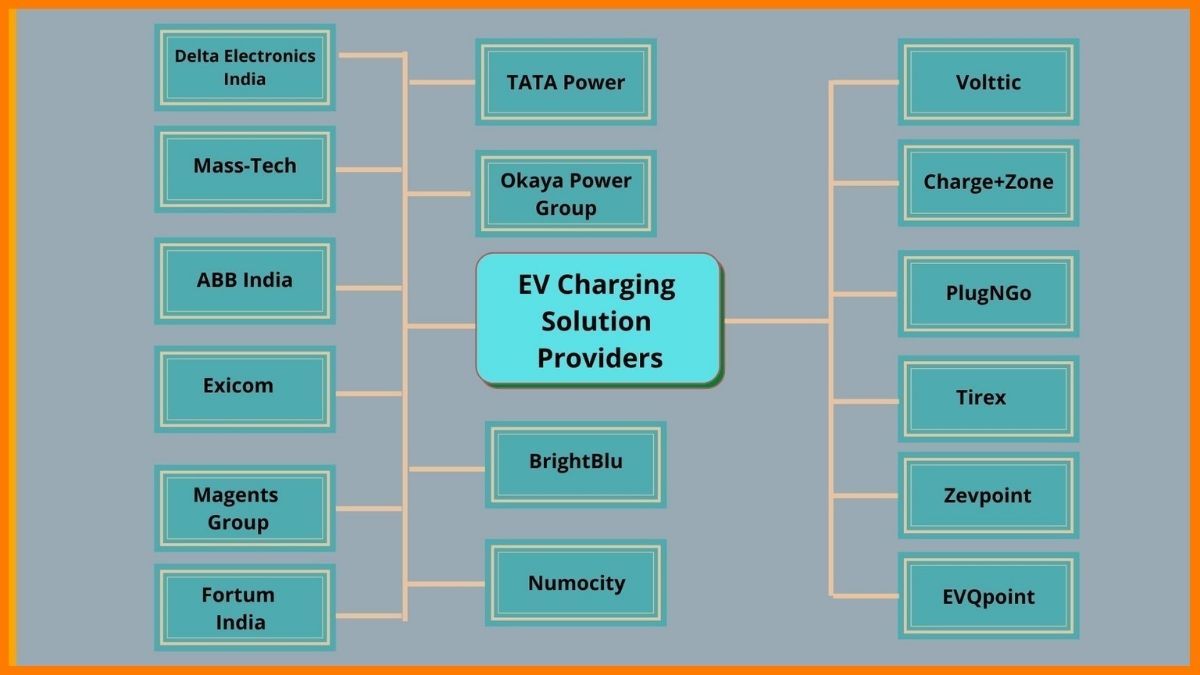How To Start EV Charging Stations Business In India
📖 Learning
The coming decade is expected to be the decade of the fully electric car. The International Energy Agency cites that by 2020 up to 20 million electric vehicles will ply the road, a number that is expected to go up to 70 million by 2025. India has a lot to gain from the widespread adoption of e-mobility. Electrification will help reduce vehicular emissions, a key contributor to air pollution which causes an average 3% GDP loss every year. The National Electric Mobility Mission Plan (NEMMP) 2020 and Faster Adoption and Manufacturing of Hybrid and Electric Vehicles (FAME) scheme were both announced in aspiration of an electric-only future for automobiles by 2030. Starting an Electric Vehicle (EV) charging station will be very much profitable also as the demand for an electric vehicle is increasing the necessity of charging stations will be very much useful.
India's electric vehicle market is projected to grow at a CAGR of over 37%, during FY2018-FY2023. India can play a lead role in it by switching over the EV mobility to ensure a greener and cleaner ecology. Under the Make In India program, the manufacturing of e-vehicles and their associated components is expected to increase the share of manufacturing in India’s GDP to 25% by 2022.
Benefits of Buying an EV (Electric Car) in India
- Low maintenance costs – The main reason why people buy an EV is the maintenance cost. An internal combustion engine car has more mechanical parts, hence, more complexities and difficult to maintain. EVs are easy and cheaper to maintain because of their simple structure and operations.
- Little to no sound – Another benefit that an EV can deliver is the silent functioning capability. No engine’s why there is no noise as well. EV can always provide you with a more comfortable ride because of its completely silent operation.
- Low running costs – Another major advantage that EVs deliver over conventional IC engine cars is the running cost.
- NO more fuel price hikes – When you buy an EV you will no longer have to worry about the daily variation of petrol and diesel prices. While the government changes the fuel price depending upon the global prices, you will no longer have to worry because you don’t need fuel anymore.
- Convenient charging at home - you may face a huge crowd at the fuel stations during peak hours. EVs are a major advantage in this case where you can simply plug in your vehicle at your home for 4-5 hours and you are ready to move again without any delay. EVs are nowadays also come with charging capabilities which allows them to charge within 60 mins.

- Easy to drive – EVs are an absolute pleasure to drive because you don’t have to operate the gear mechanisms. You only have to use a set of buttons that will increase or decrease the speed.
- Environment friendly – buying an EV is good for environment, they have no emmisions and very low carbon footprint. EVs are now the most eco-friendly modes of transport available in the market.
- Comfortable cabin and more storage options – In an EV the space utilization ratio is higher than a normal vehicle. This is because the transmission gets simpler and the motor which replaces the engine occupies less space.
- Government incentives – The benefits of buying are not limited to the vehicle itself. Government wants you to buy an EV and provides significant deductibles compared to a normal car.
- EVs are future proof – Fossil fuels are getting old and scarce. It isn't a clean energy source. Electricity, at present is generated from fossil fuels, but we are moving towards renewable sources of energy in the future. We have made significant strides in fields of solar and wind energy. We can probably hope for a completely renewable and pollutionless energy source.

Requirements for EV Public Charging Station (PSA) Installation
- Parking space for electric cars
- No fewer than five ISO-certified charging machines ( the table below is a detailed representation of the required machines)
| Charger Types | Charger Connectors | Rated Voltage | Number of Charging Points |
|---|---|---|---|
| Fast | CCS(min 50 kW) | 200-1000 V | 1/1 CG |
| CHAdeMO(min 50 KW) | 200-1000 V | 1/1 CG | |
| Type-2 AC (min 22 KW) | 380-480 V | 1/1 CG | |
| Slow/Moderate | Bharat DC-001(15KW) | 72-200 V | 1/1 CG |
| Bharat AC-001 | 230 V | 3/3 CG of 3.3 KW each |
- Space for the charging machines
- One transformer
- Cable transmission
- The area where charging stations are assigned must be safe and secure
- Has at least 5 charging machines

Types of Vehicles for PSAs
You can charge 2 wheelers, 3 wheelers, 4 wheelers, buses, and other heavy vehicles. But the basic requirement is to have space for parking vehicles which come for charging. Generally, the three first types of vehicles are easier to charge in comparison, since the former requires less space for parking.
Buses or other heavy-duty electric vehicles need a large space for charging and also require the following requirements:
- At least two chargers of a minimum 100 KW, each of different specifications (CSS, CHAdeMO) is necessary to install.
- Appropriate Liquid Cooled Cables in high-speed charging facility for Fluid Cooled Batteries’ onboard charging
- On FCS(Fast Charging Stations) for heavy electric vehicles, it must have battery swapping facilities for meeting the requirements of the charging station

Cost of Charging Stations
The electric car charging installation cost varies, depending on the following factors:
- Rent of Land
- Charging machines
- Transformer
- Electric Connections
- Technician
- Breakers
- Labor
- The software Management team
- Branding/ Marketing
- Maintenance Top EV Charging Solution providers in India

Required Locations of PCSs
- At least one charging station must be installed in a 3x3-kilometer grid.
- One charging station must be set up every 25 kilometers on highways/roads’ both sides.
- For long-range and heavy EVs, one Fast Charging Station should also be available on each side of the highways.
- In cities, charging stations should be located within Transport Nagars and bus depots.
- The appropriate authorities (State/Central/UTs) can also give priority to the current retail outlets (ROs) of Oil Marketing Companies (OMCs) in the permission to install of PCSs.
India Electric Car Market
The Indian electric car market size was valued at $71.1 million in 2017 and is projected to reach $707.4 million by 2025, witnessing a CAGR of 34.5% during the forecast period. Government schemes and subsidies are playing a major role in the growth of the market.
Based on technology, the Indian electric car market has been categorized into battery electric vehicles (BEV), plug-in hybrid electric vehicles (PHEV), and hybrid electric vehicles (HEV). BEV category held the largest share in the Indian market, contributing over 70% sales volume in 2017.
Based on battery, the Indian electric car market has been classified:
- Lithium-Iron-Phosphate (LFP)
- Lithium–Nickel–Manganese Cobalt Oxide (Li-NMC)
- Others

Others category include:
- Lithium–Titanate Oxide (LTO) battery
- Lithium–Nickel–Cobalt–Aluminum oxide (NCA) battery
- Nickel–metal hydride (NiMH) battery
- Lead-acid battery
LFP battery-based electric car was the largest category in the market, contributing over 65% sales volume in 2017, owing to the benefits such as high current rating, thermal stability and safety levels, and long cycle life.

Conclusion
Union road transport & highways minister Nitin Gadkari reaffirmed India’s potential to become a major manufacturing hub for electric vehicles in the next five years. He said the world is no more interested in doing business with China, which is a very good opportunity for the Indian industry to pick up the shift in business.
Must have tools for startups - Recommended by StartupTalky
- Convert Visitors into Leads- SeizeLead
- Website Builder SquareSpace
- Run your business Smoothly Systeme.io
- Stock Images Shutterstock






